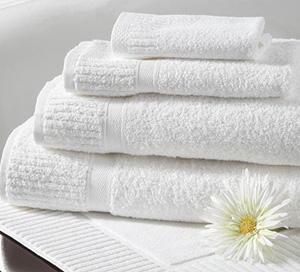In most hotels, a small sign in the bathroom invites guests to hang up their towels to avoid washing them and save the planet. Greenwashing, or a real gesture to preserve the environment?

Optimization or waste removal?
First of all, you should know that hotels have or use industrial laundries. The machines used have evolved a lot in recent years. They are more efficient, use less detergent and more environmentally friendly detergents, and consume less water. The cycles have been optimized to reduce washing temperatures…
But the basic rule in sustainable development, beyond reduction and optimization, or even recycling, is non-use; what we call in lean or operational excellence: waste elimination.
It is according to this principle that hotels invite us to eliminate the “waste” of daily towel washing.
Added value for the customer
In continuous improvement, waste is defined in relation to the value added, or more precisely, the absence of value added in the eyes of the customer. As a hotel guest, what is the added value of my stay in a hotel: a clean, heated, quiet place, with free WIFI, a smiling welcome. Having clean towels every day is really not part of my need. At home, I use the same towels and sheets for several days and I don’t mind. When I stay in a hotel for several nights, it is not to have clean laundry every day. The service offered must always be put in perspective with the needs and expectations of the customer.
The hotels put a green touch to this gesture, it exists, but they could have put an economic touch to it: “help us keep the price of the room steady”, which is undoubtedly also one of their motivations, but which would probably not have the same impact.
Always meet the needs of the customer, overprocessing leads to a loss of competitiveness. Conversely, poor quality results in a loss of market share and customer confidence.
To conclude, you can read the book Yes!: 50 Scientifically Proven Ways to Be Persuasive, which shares a study on towel reuse rates. When the messaging is about other customers behaviors, the towel reuse rate increases by 26%
